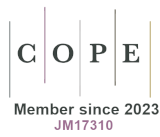The language of the Danziger in the works of Günter Grass
DOI:
https://doi.org/10.18778/1427-9665.12.11Keywords:
Grass, Danzig, languageAbstract
In his works Günter Grass tackles subjects connected with the tradition and identity of Gdańsk citizens. In this article I will first consider the most important languages in the culture of the city. Gdańsk citizens used to speak in a mixed language, because representatives of different nationalities, Poles, Germans, Jews and Kashubians lived here. At home they used Polish or Kashubian and at work or in offices standard German. For Grass and his heroes Kashubian , East Low German (Plautdietsch) or Polish were the languages of their hearts. These languages were expressed in contexts most closely associated with the home, most frequently those of food, leisure or vacations. In this article the „we-community“ (Hobsbawm 1998, S. 7) of Gdańsk, which does not exist anymore, is discussed. Thanks to the writer, readers can become acquainted with the city and its colour.
References
Assmann J. (2002), Das kulturelle Gedächtnis. Schrift, Erinnerung und politische Identität in frühen Hochkulturen, München.
Google Scholar
Borzyszkowski J., Kulikowska K., Olbracht-Prondzyński C. (2009), Kaszubi a Gdańsk, Kaszubi w Gdańsku, Gdańsk.
Google Scholar
Ciemiński R. (1999), Kaszubski werblista. Rzecz o Günterze Grassie, Gdańsk.
Google Scholar
Fac B. (1999), Günter Grass. Przyjaciel z ulicy Lelewela, Gdańsk.
Google Scholar
Grass G. (27.05.1980), Am Anfang war die Kartoffel, In: Neue Presse.
Google Scholar
Grass G. (1999), Aus dem Tagebuch einer Schnecke, München.
Google Scholar
Grass G. (1999), Gedichte und Kurzprosa, München.
Google Scholar
Grass G. (2002), Im Krebsgang, Göttingen.
Google Scholar
Grass G. (2003), Die Blechtrommel, München.
Google Scholar
Grass G. (2007), Der Butt, München.
Google Scholar
Grass G. (2008), Beim Häuten der Zwiebel, München.
Google Scholar
Hobsbawm E.J. (1998), Nationen und Nationalismus. Mythos und Realität seit 1780, München.
Google Scholar
Jaroszewski M. (2008), Die Kochkunst in der Danziger Trilogie von Günter Grass. In: Honsza N., Światłowska I. (Hrsg.): Günter Grass. Bürger und Schriftsteller, Dresden, S. 115–118.
Google Scholar
Paaß M. (2009), Kulturelles Gedächtnis als epische Reflexion. Zum Werk von Günter Grass, Bielefeld.
Google Scholar
Schlott W. (2008), Politischer Störenfeind, kaschubischer Rabelais, polnischer Don Quijote. Anmerkungen zur Grass-Rezeption in Polen. In: Kesting H. (Hrsg.): Die Medien und Günter Grass, Köln, S. 60–62.
Google Scholar
Szulist W. (2001), Noblista Günter Grass. Wybrane zagadnienia z życia i twórczości. In: Rocznik Gdański, Tom LXI zeszyt 1, S. 5–23.
Google Scholar
Szumowska H. (1982), Das kulinarische Rezept von Günter Grass. In: Studia Germanica Posnanensia. Poznań, 10. S. 93–109.
Google Scholar
Tolksdorf U. (1985), Die Mundarten Danzigs und seines Umlandes. In: Jähnig B., Letkemann P. (Hrsg.): Danzig in acht Jahrhunderten. Beiträge zur Geschichte eines hansischen und preußischen Mittelpunktes, Münster, S. 337–356.
Google Scholar
Widmann A.M. (2009), Kontrafaktische Geschichtsdarstellung. Untersuchungen an Romanen von Günter Grass, Thomas Pynchon, Thomas Brussig, Michael Kleeberg, Philip Roth und Christoph Ransmayr, Heidelberg.
Google Scholar
Zimmermann H. (1999), Vom Abenteuer der Aufklärung, Göttingen.
Google Scholar
Downloads
Published
How to Cite
Issue
Section
License

This work is licensed under a Creative Commons Attribution-NonCommercial-NoDerivatives 4.0 International License.










